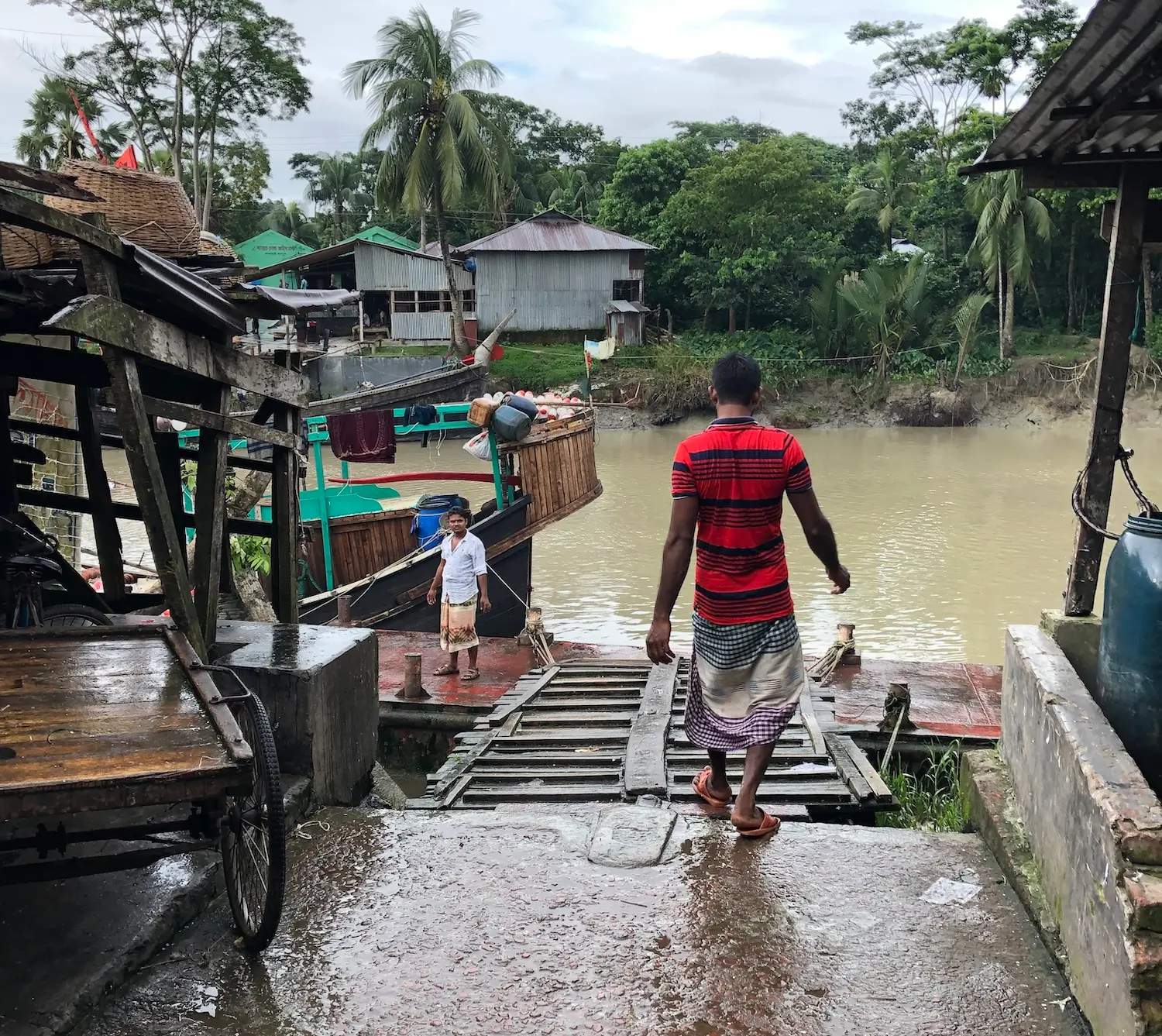
Another initiative in Bangladesh is the re-Fish project which, through donations, focuses on re-cycling, re-purposing and re-using safety, vessel and fishing equipment and giving it to those that need it most in Bangladesh. Through re-FISH we have distributed 100 wound care kits and 200 sunglasses in the villages of Alipur and Mohipur over the last few days.
In the donation and motivation ceremony the government and research bodies involved were: Fisheries Faculty members and post-graduates fisheries students from Patuakhali Science and Technology University, representative of their respected organisations, Bangladesh Sustainable Coastal and Marine Fisheries Project (BSCMFP) Barishal region, Patuakhali District Fisheries Officer, Senior Upozila Fisheries Officer of Dumki, Patuakhali Sadar and Kalapara, Scientist of Bangladesh Fisheries Research Institute, Contingent Commander Bangladesh Coast Guard, Researcher of Worldfish (ECOFISH). In addition, were the local government administrator: Upozila Chairman, Upozila Nirbahi Officer, Union Parishad Chairman.
The fishSAFE team interviewed 32 fishermen wives over two days in the rural fishing villages of Mahipur, Alipur. Many of the wives and some of their children are working in fish and shrimp processing to complement the family income as the salary of their husbands is not sufficient for them to live on and to send their children to school. Many of the wives would like their husbands to find alternative jobs to fishing and safety was a major concern for them. All the wives had lost at least one family member at sea. The wives recommended that communication systems were made available on the trawlers, alongside mobile phones, GPS and life-jackets. If these were available, they strongly believed that their people would use them.
Costal and deep water fishing is historically a very important industry, which provides jobs for around 10 million people in Bangladesh. Unfortunately, the health and safety issues of fisherman and their families have been neglected. There are almost no studies concerning health issues of the Bangadesh fisherman. Very often, due to poverty, these people have no access to medical services. Lack of basic safety and first aid training, the absence of the medical chest (kit) onboard the fishing vessels and possibilities for radio-telemedical consultations can lead to various health problems, accidents and loss of lives on shore and at sea.
During the field work a total of 98 interviews and examinations of fishermen and some of their wives took place focusing on visible parts of the body (there was no possibility for a full body check). Almost all patients were complaining gastrointestinal problems, which were worsening after 3-4 days at sea. Back and joint aches were common too. Skin and lung diseases such as contact dermatitis, verruca’s, allergy and asthma were apparent, especially among those working in fish processing. Eye problems such as uveitis, loss of vision and infections were also common conditions.
Additionally, hands and finger trauma are quite frequent at sea and due to the lack of immediate medical response when an accident like this occurs, it can lead to the loss of an organ.
Basic first aid courses, a medical chest on board and regular medical examination of the fishermen, can be the first steps to improve their health conditions.
The project has established that safety is a big concern for the fishermen and their families. Many lives have been lost as a result of lack of safety equipment and poor understanding of how to take care on board and on shore. Natural disasters, including storms and cyclones will continue to happen and it is vital that weather warnings are reacted to and that fishermen stay safe at home during these events.
Some of the key messages to come from the project so far is the need to instil a safety culture for the fishermen. fishSAFE 2025 has already provided some safety equipment to the fishermen and will also be developing training materials to address safety issues concerning: Boat maintenance, communications, general and personal safety, vessel stability and handling, survival at sea, emergency procedures and first aid. Following this, a train the trainer programme will begin in June 2020 to help build local capacity for fishermen’s safety training.
The team would like to thank all the many, many people who were involved with the project in Bangladesh, particularly Dr Sazedul Hoque and Hassan M Joy who tirelessly organised the activities locally. Special thanks also to Sagorika Smriti who was our interpreter for the interviews.
It is important to remember that every life matters and that safety should be everyone’s concern.